News archive 2021

Play and meaty food reduce hunting by cats
Domestic cats hunt wildlife less if owners play with them daily and feed them a meat-rich food, new research shows.
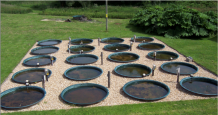
Global warming poses threat to food chains
Rising temperatures could reduce the efficiency of food chains and threaten the survival of larger animals, new research shows.
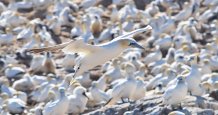
Female gannets go the extra mile to feed chicks
Female gannets travel further than male gannets to find fish for their chicks in some years but not others, new research shows.

Fishers at risk in 'perfect storm'
Stormier weather will increasingly force fishers to choose between their safety and income, researchers say.

Café reopening highlights Cornish circular economy drive
The reopening of a café – a year after closing due to lockdown – could mark a milestone in Cornwall's drive towards a "circular economy" with little or no waste.
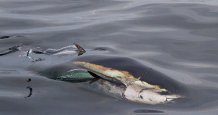
UK waters are home again to the bluefin tuna
Atlantic bluefin tuna have returned to UK waters and can once again be seen during the summer and autumn months.

Rock glaciers will slow Himalayan ice melt
Some Himalayan glaciers are more resilient to global warming than previously predicted, new research suggests.

Making spaces on the high street for clothing repairs could transform “make do and mend” into the “hipster’s’ equivalent of a spa day”, experts say
Making space in high street shops for people to repair clothes could mend the damage caused by fast fashion and transform sewing into a wellbeing activity, experts say.

Experience nearly a decade of stunning arts/science collaborations inspired by research in Cornwall
2021 marks almost a decade of the ESI Creative Exchange, a rich and absorbing programme of arts/science collaborations between researchers at the University of Exeter’s Environment and Sustainability Institute (ESI) and South West based creative practitioners.

Penryn labs receive golden sustainability award
Labs at the University of Exeter’s Penryn Campus have received top level recognition for introducing and improving sustainable practice and reducing research impact on the environment.
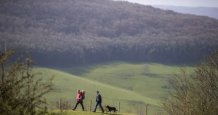
New partnership between the University of Exeter and the National Trust to help protect the natural world
A new, national partnership between the University of Exeter and the National Trust will see the two organisations join forces to help protect the natural world.
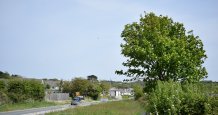
Road verges provide opportunity for wildflowers, bees and trees
Road verges cover 1.2% of land in Great Britain – an area the size of Dorset – and could be managed to help wildlife, new research shows.
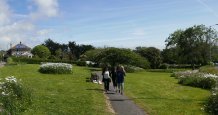
Budding photographers invited to take part in urban nature photo competition
Photographers of all ages are being invited to take part in a photo competition celebrating nature in urban spaces across Cornwall.

The Environment and Sustainability Institute launches new film to highlight the importance of working with partners to secure a sustainable future
With a week to go before the G7 conference starts in Cornwall, the Environment and Sustainability Institute (ESI), based at the University of Exeter’s Penryn Campus, is launching a new film that documents the power of investing in ideas, research and partnerships to secure a more sustainable future.

South West scores 65 out of 100 for ocean health
South West England has scored 65 out of 100 for ocean health, a new report reveals.
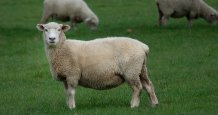
Play the Lameness Game to help reduce antibiotic use in sheep farming
A new citizen science study is trying to understand how easy it is to spot lameness in sheep by using a simulation game - in order to help reduce the use of antibiotics in sheep farming and fight the global problem of antimicrobial resistance. Click here to take part.
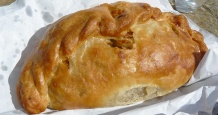
Tool developed to measure carbon footprint of a Cornish pasty
Nothing says Cornwall more than a Cornish pasty, but have you ever considered the environmental impact it is having?

G7 'legacy' project launched to protect and restore nature across Cornwall
The UK government has pledged an initial £700,000 for a nature recovery project in Cornwall as a "legacy" of this week's G7 summit.

'Manage tourism and nature to boost both,' report says
Tourism and the natural environment can be managed in ways that benefit both, new research reports suggest.
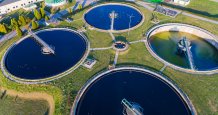
Research establishes safe water thresholds for antimicrobials, advancing the battle against resistance
Researchers have made progress towards a G7 commitment to establish safe standards for the release of antimicrobials into the environment, by developing a new framework that establishes safe thresholds.

Cornish 'doughnut economy’ requires local action
Progress towards a fair and sustainable "doughnut economy" is happening at differing rates in different parts of Cornwall and the Isles of Scilly, according to a new report.
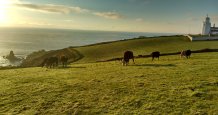
Cornish farmers could unlock 'natural capital' worth millions
Cornwall's farmers could unlock "natural capital" worth millions of pounds, a new report suggests.
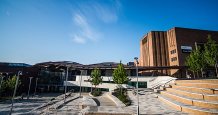
£250,000 kickstart for University of Exeter microbiologist
Dr Stineke Van Houte has received £250,000 to support her research into antimicrobial resistance.
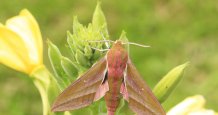
Light pollution has complex effects on animal vision
Changes in the colour and intensity of light pollution over the past few decades result in complex and unpredictable effects on animal vision, new research shows.

Prestigious Award for Making Space for Nature project
A project that’s turning green deserts into wildlife-friendly spaces across Cornwall has received a prestigious award.

Red Dead Redemption 2 teaches players about wildlife
Players of the popular game Red Dead Redemption 2 learn how to identify real American wildlife, new research shows.
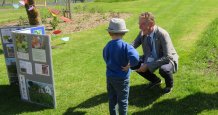
Making Space for Nature Photography competition winners
The University of Exeter and Cornwall Council recently ran a successful photography competition encouraging people in Cornwall to get out and explore their local green spaces.
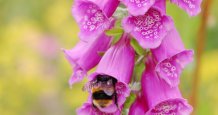
Farmers help create ‘Virtual safe space’ to save bumblebees
Solutions to help pollinators can be tested using a “virtual safe space” tool created by scientists at the University of Exeter in collaboration with farmers and land managers.

Rapid increase in global light pollution
Global light pollution has increased by at least 49% over 25 years, new research shows.

Limiting the impacts of technology materials for the low carbon transition
Researchers have demonstrated how a detailed ‘cradle to grave’ evaluation at the outset of new metal mining explorations can greatly mitigate against negative environmental impacts.
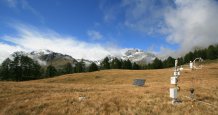
Functioning of terrestrial ecosystems governed by three main factors
Ecosystems provide multiple services for humans. However, these services depend on basic ecosystem functions which are shaped by natural conditions like climate and species composition, and human interventions.

Hospitals in Cornwall committed to cutting plastic use – but ‘closing the loop’ essential, say researchers
Cornwall's hospitals are redoubling their efforts to use less single-use plastics despite the huge demand for PPE during the Covid-19 pandemic.
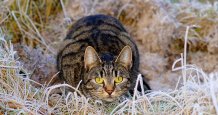
Cats' whiskers reveal felines favour free lunch
Domestic cats that regularly catch wild animals still get most of their nutrition from food provided at home, new research shows.

Exeter researcher secures prestigious national Fellowship to pioneer new generation of solar panels
A Renewable Energy Expert from the University of Exeter has received a prestigious national fellowship to pioneer new research to create ultra-compact and lightweight solar panel technology.

'Trade-offs' between wellbeing and resilience
There can be "trade-offs" between increasing human wellbeing and improving the resilience of societies and ecosystems, researchers say.

Exeter laboratories gain LEAF status
More than 80% of eligible laboratories and research spaces at the University of Exeter have now been assessed via the Laboratory Efficiency Assessment Framework (LEAF).
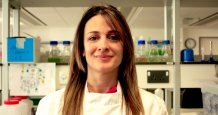
Exeter lab manager wins Sustainability Champion Award
A University of Exeter lab manager has been named a "Sustainability Champion" in the 2021 Green Gown Awards UK & Ireland.
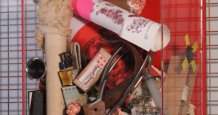
Decay on show in 'living' museum exhibit
A new exhibit in Copenhagen explores what happens when museum objects are allowed to change and decay.
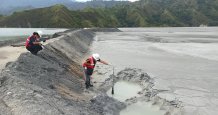
Exeter to play pivotal role in new research into sustainable mineral production in the Philippines
The University of Exeter has helped secure more than £3 million in funding to lead pioneering new research into sustainable mineral production in the Philippines.

Repair cafes and “20 minute neighbourhoods” should be used to revitalise Cornish high streets
New repair cafes where people can mend and modify clothing and creating “20 minute neighbourhoods” would help to revitalise Cornish high streets, a new report says.

New research moves closer to harnessing viruses to fight bacteria and reduce antibiotic use
New research has moved a step closer to harnessing viruses to fight bacterial infection, reducing the threat of antibiotic resistance.
